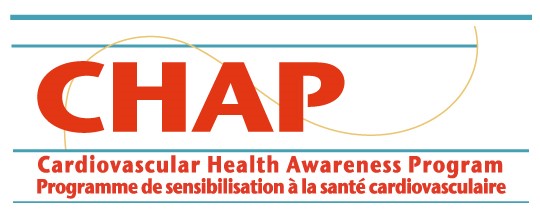Seniors Adding Life to Years (SALTY)

Seniors – Adding Life To Years (SALTY) is a four-year study on quality of life among people in late life who are living in residential long-term care settings, their caregivers and supporters.
The project, involving decision makers, clinicians, care providers, including family and friends care, is being conducted in Ontario, British Columbia, Alberta and Nova Scotia, led by Professor Janice Keefe at Mount Saint Vincent University and director of the Nova Scotia Centre on Aging.
The SALTY research program is organized in 4 streams that address interrelated themes in late life care. Diverse members of the SALTY team are engaged in (1) monitoring care practices, (2) mapping approaches to care relationships, (3) evaluating innovative practices and (4) examining policy contexts.
Seniors – Adding Life To Years (SALTY) is a four-year study on quality of life among people in late life who are living in residential long-term care settings, their caregivers and supporters.
The project, involving decision makers, clinicians, care providers, including family and friends care, is being conducted in Ontario, British Columbia, Alberta and Nova Scotia, led by Professor Janice Keefe at Mount Saint Vincent University and director of the Nova Scotia Centre on Aging.
The SALTY research program is organized in 4 streams that address interrelated themes in late life care. Diverse members of the SALTY team are engaged in (1) monitoring care practices, (2) mapping approaches to care relationships, (3) evaluating innovative practices and (4) examining policy contexts.
York U Faculty of Health Professor Tamara Daly will co-lead stream two “approaches to care relationships” with Professor Ivy Bourgeault of University of Ottawa and Dr. Katie Aubrecht of Mount Saint Vincent. This research is mapping the social and relational dimensions of quality of life and quality of care in LTC facilities, providing fresh insight into the relationships that “add life to years” and the implications for improving late life care for Canadians, focusing on programs, practices and policies being used in residential long-term care facilities across British Columbia, Alberta, Ontario and Nova Scotia. Stream two will be housed at the York University Centre for Aging Research and Education.
This project is funded by the Canadian Institutes for Health Research, the Nova Scotia Health Research Foundation, the Michael Smith Foundation for Health Research and the Alzheimer Society of Canada.
For more information about this project, please contact: Dr. Tamara Daly (dalyt@yorku.ca).
Imagining Age-Friendly: Communities within Communities

This brand new 7-year Social Sciences and Humanities Research Council funded project builds on the World Health Organization’s (WHO) “Age-Friendly Communities” global initiative. Our conceptualization of promising practices in aging assumes that they “add life to years”, rejecting so-called apocalyptic notions of population aging.
The age-friendly strategy operates mostly at the city-community level with a one-size-fits-all approach. Our attention to “communities within communities” across 12 cities in Canada and around the world guides us to account for differences. Addressing critical knowledge gaps identified by WHO, we will investigate how culture and gender matter in creating age-friendly cities. Our goal is to enhance the effectiveness of age-friendly practices in light of demographic shifts associated with both population aging and diversity. We ask: how can age-friendliness support conditions in which all senior citizens not only maintain healthy active lives, but can participate and create meaning in later life?
Attention to gender draws us to investigate how inequalities and differences between and among women, men and non-binary people play out in seniors’ lives and policy assumptions. Our approach to culture assumes diversities due to global migrations; imperatives for Truth and Reconciliation with indigenous peoples; intra-cultural gender roles; and rich community cultures among people with disabilities and LGBTIQ2S groups, which affect what it means to grow old with dignity and respect. We will investigate what makes age-friendly communities promising places with “promising practices” for women, men and non-binary people; those living in poverty; LGBTIQ2S, ethno-racial, indigenous, disability and Dementia communities; families who require specific supports and services; and those who support seniors, especially migrants and domestic carers, who are aging on the job. We recognize that seniors are a mobile population, moving across neighbourhoods and the globe for many reasons, from fleeing persecution to downsizing.
The strategies to conduct the research include organizing researchers and students to work within and across four themes, each co-led by teams of researchers addressing specific sub-questions.
For more information about this project, please contact Dr. Tamara Daly (dalyt@yorku.ca).
The Cardiovascular Health Awareness Program (CHAP)

This important project applies more than a decade’s worth of work done as part of the Cardiovascular Health Awareness Program (CHAP) to the goal of reducing the impact of cardiovascular disease for York region’s South Asian community. Through a series of studies, CHAP has been shown to be an acceptable intervention to reduce participants’ blood pressure, encourage lifestyle changes and to optimize drug regimens. The project aims to extend its proven successes by adapting its material and approaches to the York Region South Asian Community, to assess the voluntary model of program delivery, and to identify gender and ethno-specific impacts of the program.
Research Question & Objectives
The main research questions are:
- What adaptation strategies to the Cardiovascular Health Awareness Program (CHAP) should be put in place in order to successfully prevent and manage chronic disease among the South Asian community?
- How can we address gender and ethno-specific impacts?
- What are the best strategies to optimize the recruitment, retention and health promotion role of peer health educators among the South Asian Community?
For more information about this project, please contact: Dr. Tamara Daly (dalyt@yorku.ca).
Limited physical activity and bed rest in seniors with complex chronic disease
This grant focuses on identifying research priorities to prevent decreased mobility in older persons with CCD following an acute illness episode. The meetings will be conducted in two phases. In Phase 1 we will identify research priorities to prevent decreased mobility following an acute illness episode in this population. In Phase II, we will develop a research action plan which jointly addresses gaps in the knowledge and stakeholder information needs, and forge new partnerships for the future projects. Outcomes include: an action plan outlining future research initiatives which are relevant to stakeholders’ information needs and represent a gap in evidence in this area.
For more information about this project, please contact: Dr. Mary Fox (maryfox@yorku.ca).
Phase 1 of an early rehabilitation intervention for older adults with complex chronic disease
Intense physical activity is often undesirable and unacceptable to older adults experiencing an acute illness or exacerbation of a chronic condition. Yet, inactivity in the form of bed rest is has many known adverse health consequences. To address this issue, we are developing 2 low intensity exercise programs with input from older adults. We are evaluating older hospitalized adults opinions about the programs. The results will be used to refine the interventions, clarify patient characteristics on which to tailor the interventions and define the required resources prior to testing their effects in a future clinical trial.
For more information about this project, please contact: Dr. Mary Fox (maryfox@yorku.ca).
